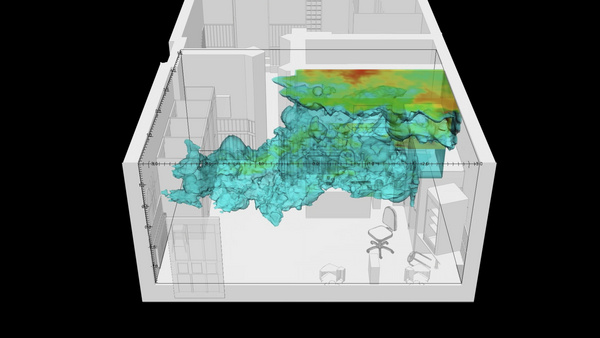 Foto: Forensic Architecture: "The Murder of Halit Yozgat"
Reminder: Workshop: Caring and Investigating, 12.07.2019
July 12, 2019, 9:30–18:15
Einsteinufer 43-53
Room 203
Organized by DFG Research Training Group “Knowledge in the Arts”, Berlin University of Arts
www.udk-berlin.de/graduiertenkolleg
The workshop language is English
Space is limited. For registration please contact Xin Wang
xi.wang@udk-berlin.de
Truth is not an unimpeachable category. Its main counterparts, however, are no longer the critical skepticisms of constructivism, postmodernism, or poststructuralism, but "post-truth" politics that exploit it to create "alternative facts", to accuse everything of "fakes" in order to assert one's own power, rule and invulnerability. In view of the outlined inversion of the questioning of truth by populist, right-wing and neo-fascist actors, the question arises as to what relationship to the concept of truth is today proposed epistemologically and politically by artists and journalists in order to counter the "post-truth conditions".
If the claims of universal truths and realities were adopted for good reasons, today particularity and partiality are all the more essential factors. Under the present medial, social and political conditions, they are both a solution and a problem. How do particularity and partiality bring truth(s) to the fore? In what ways do they themselves become perceptible in the representations?
Because acts of truth-telling are taking place as scenes that are saturated with power and are constituted medially, Michel Foucault's studies of Parrhesia play an important role for us. How have the formalized conditions changed, whose speech is considered to be truth-telling, when and how? What role do the current media constellations play in this? To what extent can audio-visual artefacts be understood as acts of truth-telling? How do the fields of art and journalism transform the specific risk of truth-telling?
The workshop will therefore discuss artistic and journalistic practices that take a position in the struggle for the conditions of how truth, and thus credibility, is generated. Specifically, we will look at practices that aim at the investigation of injustice, the expansion of regulatory power through clandestine and discrete data collection, and the implicit power structures in the process of information generation and mediation, while at the same time being guided by the concern for subjugated, marginalized knowledge. How can the relationship between investigating and caring as central practices of contemporary truth politics be described? In what way are these practices caught up between truth and knowledge? How can truth unfold both evidence and affective agency?
Program
9:30 Welcome
10:00 Amor mundi: documentary, contemporary art, and the descriptive power of lens-based capture
with Erika Balsom (Film Scholar, King's College, London)
11:00 Democracy in danger? On the state of disinformation on the internet.
with Karolin Schwarz (Journalist, Berlin)
12:00 Aesthetic witnessing, horizontal verification, and community-based reality
with Bob Trafford (Forensic Architecture, Goldsmith’s College, London)
13:00 Lunch break
14:30 Workshops (world café)
with Erika Balsom, Karolin Schwarz, Robert Trafford
17:30 Coffee break
17:45. Final discussion
18:15 End
Concept: Maja Figge, Sebastian Köthe, Irina Raskin, Renate Wöhrer
Organisation: Juana Awad, Christina Deloglu-Kahlert, Xin Wang
|